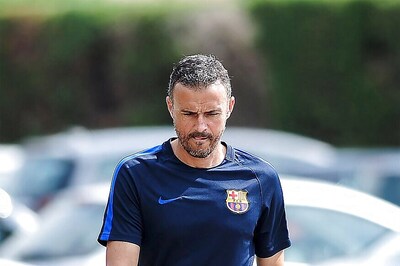
views
NASA on Thursday said that it cannot fix its hobbled planet-hunting Kepler Space Telescope and is considering what sort of scientific research it might be able to do at half-capacity.
"Today, we are reporting we do not believe we can recover three-wheeled operations, or Kepler's original science mission," said Paul Hertz, NASA Astrophysics Division Director. "So the Kepler project is turning its attention to studying the possibility of two-wheeled operations."
The unmanned spacecraft launched in 2009 on a search for rocky planets orbiting in the habitable zones of Sun-like stars -- in other words, planets like Earth that might contain life. It has so far found 3,500 planetary candidates including several hundred Earth-sized candidates from its first two years of data, according to William Borucki, Kepler science principal investigator.
From its final two years of data already collected, yet to be analyzed, "we expect hundreds, maybe thousands of new planet discoveries," said Borucki. He said it will take up to three years to pore over the findings Kepler has already collected through studying the distant signals of stars and planets crossing in front of each other, known as transits.
"We really expect the most exciting discoveries are going to come in the next few years as we search through all this data." In July 2012, NASA reported that one of Kepler's four reaction wheels which help orient the spacecraft had broken down, followed by a second in May 2013. One space agency expert described the problem as like trying to push a grocery cart with a stuck wheel. Experts tried to fix it by reversing it, but it soon failed again and the motors were unable to keep the wheel going.
"The wheels are sufficiently damaged that they cannot sustain spacecraft pointing and control for any extended period of time," said Charles Sobeck, Kepler deputy project manager. A pair of studies are expected to show in the coming months what sort of science might be possible with a hobbled Kepler. Kepler scientists said some possibilities include searching for comets or asteroids. When those studies are complete, NASA will perform a cost-benefit analysis to determine whether research should continue with Kepler or if money would be better spent on other projects. NASA has allocated USD 18 million to the Kepler project in fiscal year 2013.




















Comments
0 comment